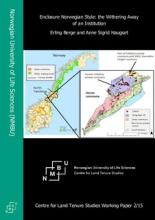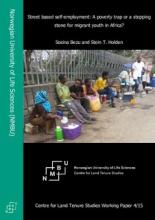Land Library
Welcome to the Land Portal Library. Explore our vast collection of open-access resources (over 74,000) including reports, journal articles, research papers, peer-reviewed publications, legal documents, videos and much more.
/ library resources
Showing items 46 through 54 of 118.The nature and significance of China's engagements with African agriculture continues to be hotly debated in the media, academia and policy circles around the world.
Equitable access to land is vital for inclusive economic growth, sustainable development and food security. Although much is known about the topics of land governance and food security, it is not always clear how the two relate to each other, especially in specific country contexts.
Food security in Uganda relies mainly on access to land and security of tenure. Land governance is marked by the contradiction between relatively progressive legislation and only partial implementation.
Uganda discovered commercial quantities of oil in the country in 2006 and ever since, there has been increased activity in the exploration of oil and gas.
Land acquisition for development projects by government, private investors and land speculators is a critical source of tensions and conflicts in many parts of Uganda.
The 1995 Constitution of the Republic of Uganda is one of the most gender sensitive constitutions in the world, with clear provisions for promoting and protecting the rights of women.
Since Karamoja is richly endowed with gold, marble, iron ore, tungsten, limestone, oil and gas, it has attracted many investors, in particular since the protracted armed conflicts in northern Uganda started fading away.
More than 200 years after the King sold one of the “King’s commons” of Follafoss (located inthe current Verran municipality) to urban timber merchants, local people in some ways still behave as if the area is a kind of commons.
A significant percentage of youth in urban Africa is employed in the informal sector. The
informal sector is more accessible than the formal sector for people with low human and
financial capital, such as youth migrants from rural areas. But the sector is also generally






